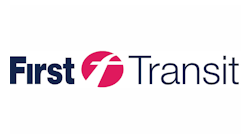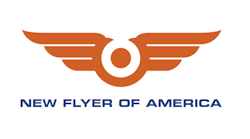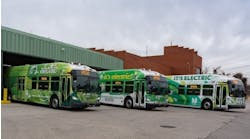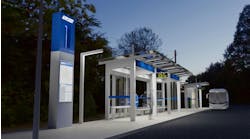Los Angeles, Calif.
Phillip A. Washington
CEO
Los Angeles County Metropolitan Transportation Authority
Spelling Safety Through the Three Es: Engineering, Education, Enforcement
As our transit systems evolve, so must our programs to keep safety as our number one priority. In the past year, the Los Angeles County Metropolitan Transportation Authority (LA Metro) has faced some serious challenges to combat crimes in and around our facilities.
In 2014, LA Metro experienced a spike in incidents of assaults against bus operators. At the same time, Metro learned through our semi-annual Customer Satisfaction Survey that 22 percent of our bus and rail riders reported being sexually harassed in some way.
Metro launched a multi-faceted effort involving operations, communications and our policing agency, the Los Angeles County Sheriff’s Department (LASD), emphasizing engineering, education and enforcement – what we call the 3-Es.
The first action was to find engineering solutions. Operations retrofitted a test group of buses with television monitors that display the live feed of our bus-mounted CCTV cameras. One monitor was placed above the operator so that passengers can see themselves boarding and paying their fares with the second monitor placed on the bulkhead showing seated passengers.
Step two was to install a polycarbonate barrier to protect operators. Metro worked with New Flyer to add barriers on our order of 900 new buses, and steps are underway to retrofit an additional 1,300 buses within two years. We are encouraged by preliminary results that indicate more fare compliance and fewer assaults.
Education is the second component in our safety strategy. We launched a campaign called “Meet Metro’s Best” on buses and trains to humanize front-line employees by highlighting operators and mechanics with a personal story.
Metro is also augmenting operator training with Transit Ambassador, a program from the Canadian Urban Transit Association. It emphasizes customer service and features modules to help operators deal with stress in their lives and defuse potentially dangerous situations.
Metro’s customer survey found that an unacceptably high percentage of riders were subjected to sexual contact such as unwanted comments, touching and exposure. In April, Metro launched “It’s Off Limits,” a campaign encouraging victims and witnesses of sexual harassment to make police reports. We held a widely-covered news conference and distributed materials on all buses and train cars. Five months later we surveyed again and the percentage of passengers reporting sexual harassment declined from 22 percent to 19 percent.
Law enforcement is a mammoth undertaking with a system with 2,200 buses, 87 miles of rail and 1.4 million weekday boardings. In the past, the LASD focused on enforcement and Metro concentrated on making the system as efficient as possible. But recently, Metro Operations, Communications, Planning and the LASD collaborated to design a simple process in the event that a Metro employee is the first point of contact for a citizen complaint.
So far our approach is producing positive results, and we hope for even better results in the coming year as we continue to maintain our safety pledge to our employees and patrons.
www.MassTransitmag.com/12130845
Cincinnati, Ohio
Thomas J. Harris
Vice President, Safety & Human Resources
First Transit
Establishing and Reinforcing Safe Behavior
Safety is a core value of First Transit. It is at the center of everything we do. We start every employee meeting with a safety message. So, how do we instill and reinforce safety so that it permeates throughout an entire organization?
First Transit believes that safety is not only found in a set of policies and procedures; safety is a living, breathing attribute that begins the minute a potential employee applies for a job within our organization.
Our safety program starts with each employee going through a rigorous review during the hiring process, including:
- Pre-employment drug and alcohol testing
- Stringent background and record checks
- Physical performance evaluations
- Comprehensive customer service training
Throughout employment, safety is reinforced through training proper thought processes and behaviors, preparing for specific scenarios, and knowing how to respond in ways that improve passenger and operator safety.
This is done through:
- The Smith System Defensive Driver Training program, which is completed as part of new driver training, as well as refreshers conducted throughout the year
- Extensive ongoing driver training, including in-classroom and behind-the-wheel training
Supporting each other and being accountable for our performance are also core values of First Transit, and are reflected in our safety program. We encourage all employees to identify and help change any behaviors or thought processes they observe that could in any way compromise safety .
We strive to build a culture that is focused on rewarding improvements in both individual and team performance, which is why we have employee-focused programs, including:
- Rewarding improvements in both individual and team performance
- Encouraging group safety awareness activities
- Recognizing and rewarding personal safety longevity
Our First to Zero Initiative, which means we strive to achieve zero collisions, is yet another example of our ongoing focus on safety. These company-wide safety and injury prevention programs are designed to encourage employees to keep safety front of mind and bring attention to anything that could challenge our safety standards.
As we work to achieve our vision of keeping people moving and communities prospering, we do so fully dedicated to safety. It is among the many areas in which we hold ourselves accountable for setting the highest standards.
www.MassTransitmag.com/12128740
Boston, Mass.
Justin Vonashek
Chief Safety, Security, Emergency Preparedness & Regulatory Compliance Officer
Keolis Commuter Services
Improving Operator Safety
A railroad’s men and women are one of the greatest resources an operator can have to improve operator safety. Their institutional knowledge cannot be taught in a class and only comes with years of experience working on the system. Keolis values this knowledge and holds it as one of our greatest assets in improving safety.
One such way we have utilized this is through Confidential Close-Call Reporting System (C3RS). In Boston, we teamed with our labor partners, the Massachusetts Bay Transportation Authority and the Federal Railroad Administration to become part of the Confidential Close-Call Reporting System (C3RS), a voluntary program that allows Keolis employees to anonymously report a safety problem or close call event to a third party, in this case, the National Aeronautics and Space Administration (NASA). This program would not have been possible without the support from our labor partners. It allows us to focus on the problem rather than the people. Our focus is on proactively addressing any and all safety issues before they become incidents. The FRA’s C3RS Pilot Program Midterm Report concluded that C3RS improves labor-management relationships and employee engagement – an important key to safety.
C3RS is used as a complement to our existing safety programs. Keolis has also created joint Labor-Management Safety Committees in all Departments. These Committees focus on safety issues brought forward by the men and women in the field. In addition to the Safety Committees, Working Groups are also established to address issues that remain unresolved after 90 days at the Committee Level. The Working Groups are organized to utilize whatever resources are needed at a higher level to assist the Committees in addressing the unresolved issues. Should funding or resources become an impediment to eliminating a safety concern, the matter is pushed up to a Safety and Security Steering Committee made up of senior managers including financial officers which meets on a quarterly basis.
At each step along the way, it is the worker in the field who is key to addressing the issues. Safety is everyone’s responsibility and working together as a team is most important to our success.
www.MassTransitmag.com/12128734






